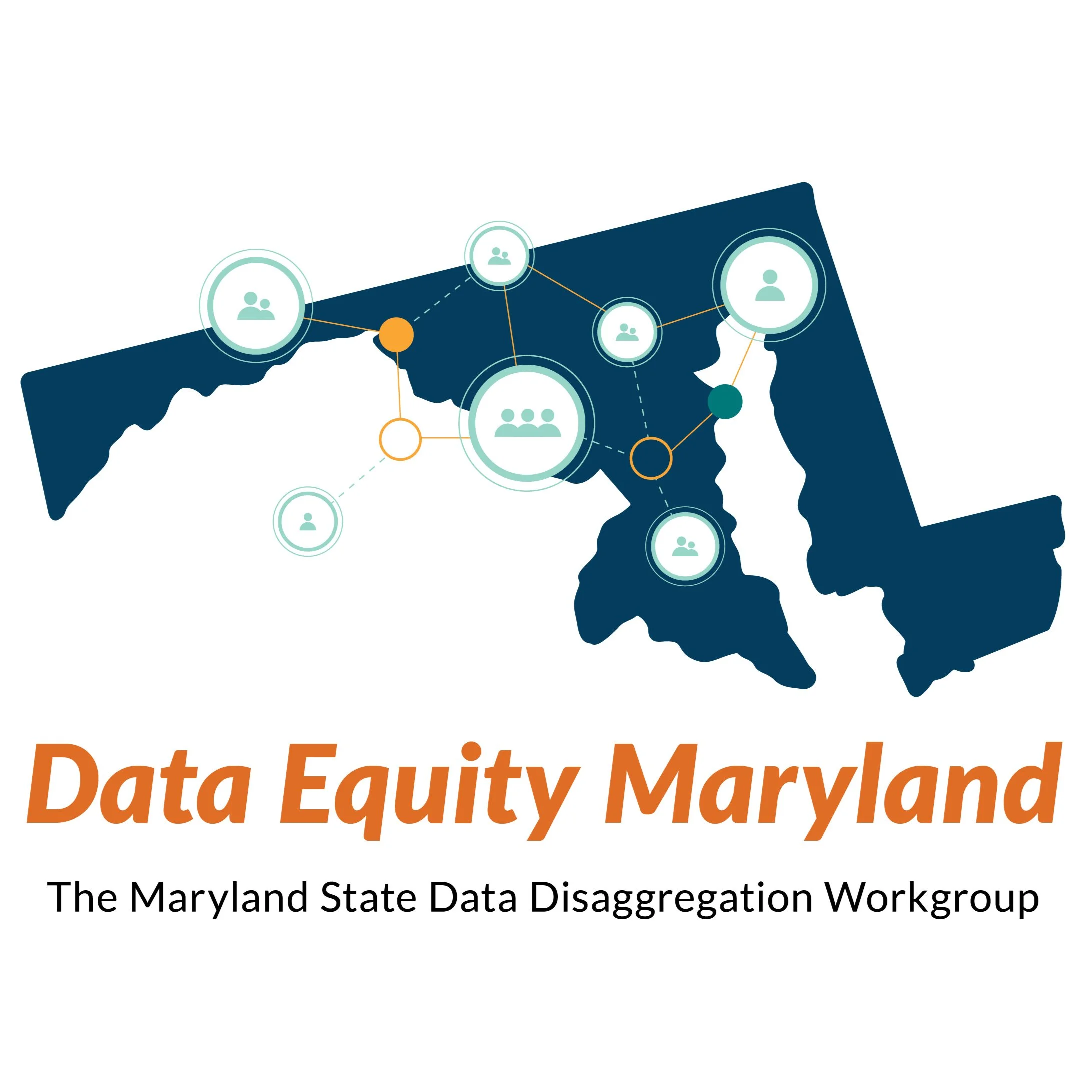
Advancing Data-Driven Equity and Inclusivity
The Maryland State Data Disaggregation Workgroup
What is Data Disaggregation?
Data disaggregation involves the practice of breaking down aggregated data into specific subgroups based on various demographic characteristics such as:
Race
Ethnicity
Gender
Income
And more!
Why Does it Matter?
Provides a clearer picture of disparities that might be masked when data is collected and reported in aggregate form.
We strongly believe that implementing data disaggregation policies is an essential step towards understanding and addressing systemic inequities that persist within our state.
Evidence from various jurisdictions across the country has shown that data disaggregation leads to more targeted policy interventions, ensuring that marginalized communities receive the resources and support they need.
Understand
When we collect, analyse and share consistent, accurate, comprehensive data, we begin to better understand and shed light on inequalities in education, healthcare, housing, employment and criminal justice.
Act
A data-driven approach to change can empower policymakers to make informed decisions, allocate resources effectively, and ensure that no community in Maryland is left behind.
Monitor
By creating standards and accountability, we can track and make adjustments as we all work toward creating a more inclusive community so that all Marylanders can thrive.
Our Recommendations
Legislation for Data Disaggregation
Advocate for the introduction of legislation that mandates the collection, reporting, and analysis of disaggregated data across various sectors, such as education, healthcare, criminal justice, and economic opportunities.
Statewide Data Collection Guidelines
Collaborate with relevant agencies to establish clear guidelines for collecting and reporting disaggregated data, ensuring consistency and accuracy in data collection methods.
Equity Impact Assessments
Require that all proposed policies and programs undergo an equity impact assessment, which includes analyzing disaggregated data to identify potential disparities and inequities.
Training and Capacity Building
Support initiatives that provide training to government officials, analysts, and stakeholders on the importance of data disaggregation, how to interpret disaggregated data, and its implications for equitable decision-making.
Public Awareness Campaigns
Launch public awareness campaigns to educate the public, policymakers, and stakeholders about the value of disaggregated data in creating more inclusive and effective policies.
Regular Reporting and Accountability
Implement a system for regular reporting on disaggregated data findings and outcomes to hold government agencies accountable for addressing disparities and improving outcomes for all segments of the population.
Workgroup Participants
Allegany County Health Planning Coalition
Baltimore City Local Health Improvement Coalition
The Partnership for a Healthier Carroll County
Healthy Calvert
Coalition for a Healthier Frederick County
Harford County Local Health Improvement
Prince George’s Healthcare Action Coalition
Resource Library
Informational Resources about Advancing Data-Driven Equality and Inclusivity
Access our entire resource library by visiting the links to the right. This allows you to look for additional information to fully understand the topic of Data Disaggregation and how it affects Marylanders or provides you materials to better equip yourself to talk to others about this topic.
Overall Educational Materials
Forms
Past Event: June Convening







